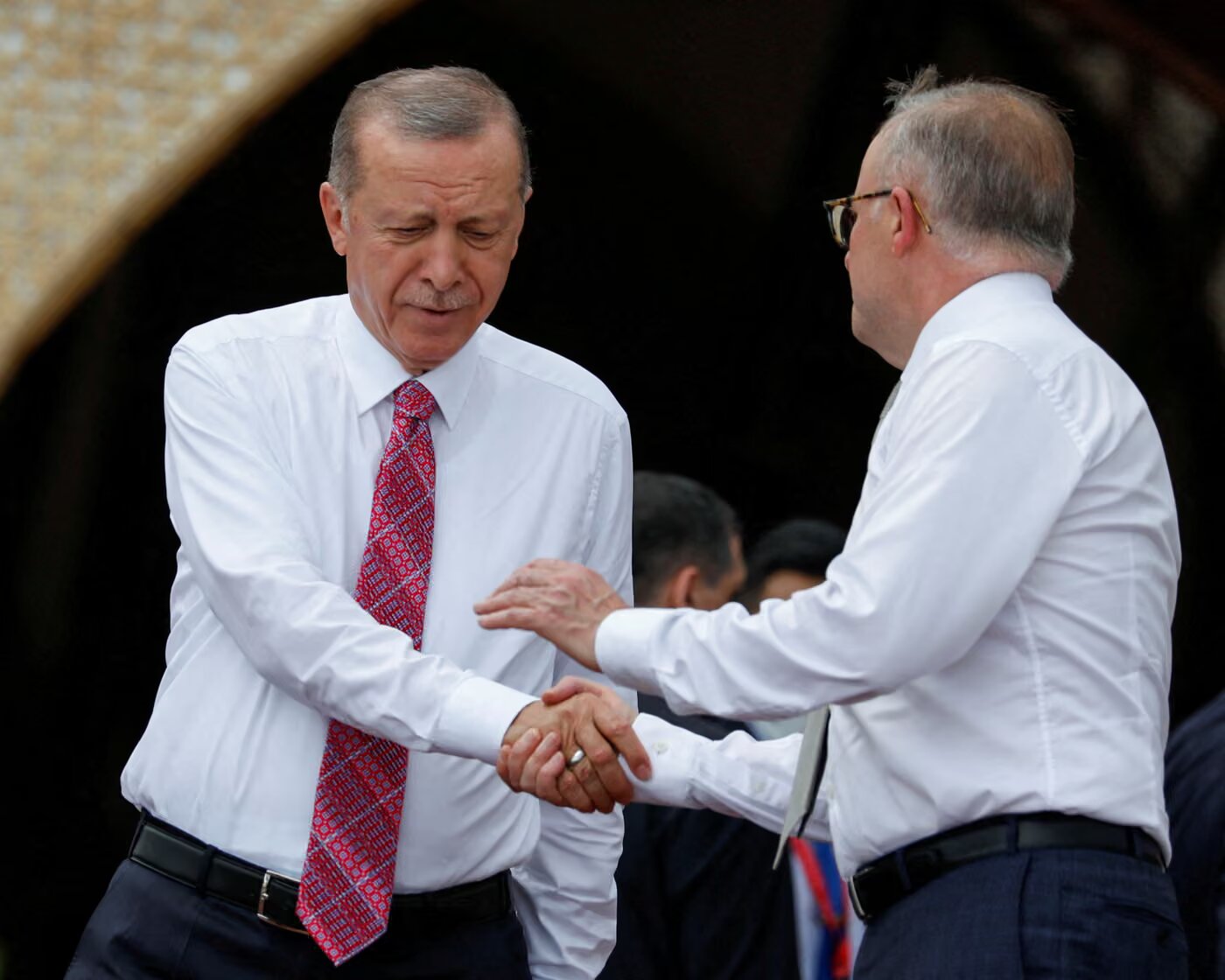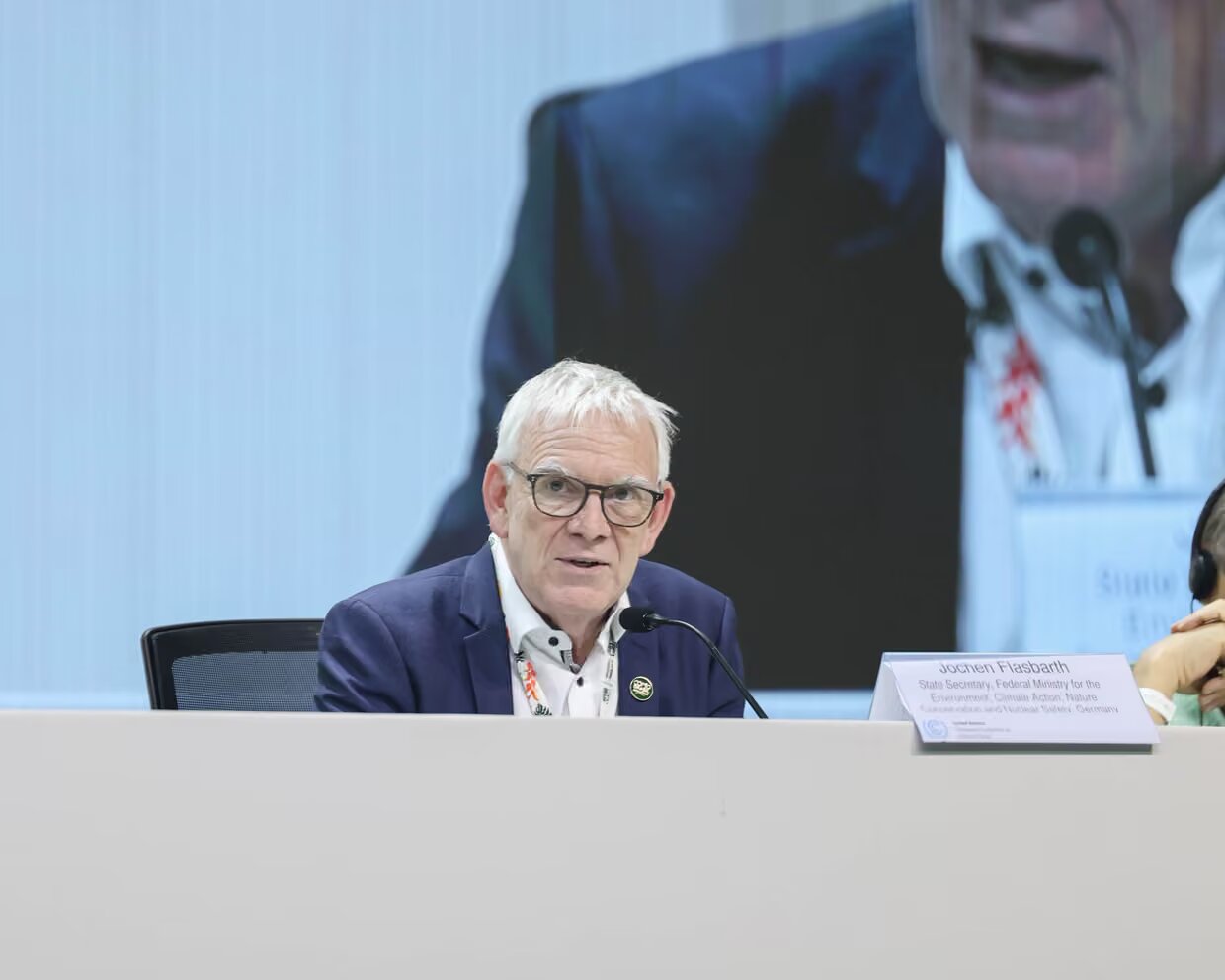A years-long standoff over who should host the 2026 climate summit leaves Brazilian hosts, and other states, frustrated

Delegates turning up in the Amazonian city of Belém for the Cop30 climate conference were greeted by what some interpreted as a less than subtle dig by the Brazilian hosts.
The pavilions for Australia and Turkey – the countries that for more than three years have been competing to host the next Cop summit in November 2026 – had been placed side by side in the convention centre.
The message appeared clear: hurry up and sort it out.
The reality was apparently more prosaic. Climate conferences are sprawling events with tens of thousands of people, and the country holding the next Cop is often sited near the UN climate office and the current host to make communication easier. In this case, with no clarity on who will host Cop31, both countries are in the loop, location-wise.
It seems unlikely that clarity will emerge until the sleepless final stages of the fortnight-long meeting that began on Monday. And nearly everyone is frustrated by the deadlock.
Speaking to journalists in Sydney on Thursday, Anthony Albanese, the Australian prime minister, said Recep Tayyip Erdoğan, the Turkish president, had written to him in the previous 24 hours to say he was “maintaining his position” that the event should be held in the Mediterranean resort city of Antalya.
Albanese said this was “in response to Australia maintaining our position” in earlier correspondence – that it wants to cohost a “Pacific Cop” in partnership with island nations – in part to highlight that they are already experiencing the climate crisis as an existential threat and need greater support.
He stressed that a Cop had never been held in the Pacific, and said he had since spoken with Surangel Whipps Jr, the president of Palau, and James Marape, Papua New Guinea’s prime minister, to reiterate his support for holding the event in the South Australian capital of Adelaide.
“Our neighbours, as well as Australia, think it is time that it was held in this region,” Albanese said. “There have been Cops held in Azerbaijan, in the UAE, and in Egypt, so in that part of the world [west Asia and the Middle East], but never one in this part of the world, where Pacific countries like Tuvalu and Kiribati are literally under threat for their very existence.”
The Turkish camp has also ramped up its pitch. Speaking at the leaders’ summit of Cop30 – an event that neither Albanese nor Erdoğan attended – the Turkish vice-president Cevdet Yılmaz said his country was “ready to assume a bridging role between the north and the south in the fight against climate change”.
Hosting a Cop is a weighty, logistical and political challenge. It includes trying to navigate agreement between nearly 200 countries on how to tackle the climate crisis at a time of heightened geopolitical conflict and anxiety.
Finding a solution to who should do the job is complicated by the UN’s opaque decision-making process. Hosting rights are shared on a rolling basis between five groups of countries, mostly based on geography. Responsibility for Cop31 lies with the 28 members of the Western Europe and Others Group, known in UN lingo as Weog. Somewhat incongruously, Australia and Turkey are members.

For more than a year, the overwhelming majority of Weog nations have backed the Australia-Pacific bid. None have supported Turkey. But under UN rules, the decision must be made by consensus within the Weog. Someone must be persuaded to yield.
Whipps, who did attend the leaders’ summit, told the Guardian it was clear from that meeting that the Pacific bid had the most support. He said he and other Pacific leaders had written to Erdoğan on the issue but received “no real response”.
“The decision should be an easy one, even if just as a matter of geographic equity, a central principle of the United Nations,” Whipps said. “Turkey graciously stepping aside would be seen by us as a significant act of good faith in solidarity with those of us on the frontline, and allow President Erdoğan clear air to focus on his hosting of Nato leaders mid next year.”
If agreement cannot be reached by the end of next week there is an unprecedented default option. Germany, as the home of the UN climate headquarters in Bonn, would be obliged to step in. But the German government is resisting that possibility.
Jochen Flasbarth, Germany’s state secretary in the environment ministry, acknowledged to Politico that the country may have to take on Cop31, but said “we do not want to”.
“That’s why all the signals we’re sending out are, for heaven’s sake, get Australia and Turkey to agree so that this technical solution doesn’t come into play,” he said.
Diplomatic sources confirmed that Germany, as the chair of Weog, had asked the British delegation to help broker a solution. The Brazilian hosts have also committed to mediate negotiations, amid warnings they could distract from the agenda at what is already a difficult conference.
But little progress is expected before Australia and Turkey’s respective climate ministers, Chris Bowen and Murat Kurum, arrive this weekend for the conference’s traditionally sleepless final scramble.
Sources said both countries had proposed compromises in recent weeks – what Murat Kurum said could be “innovative solutions”. For the Turkish party, these reportedly included suggesting the Cop presidency be shared by the two countries. . Australia is understood to have proposed that Turkey could be given a role hosting other meetings linked to Cop31.
So far, neither has been enough.
It is not always this hard. On Tuesday, the African Group of Negotiators made a call, endorsing Ethiopia’s bid to host the Cop32 conference despite a rival bid from Nigeria. At least climate negotiators know they are heading to Addis Ababa in 2027.
